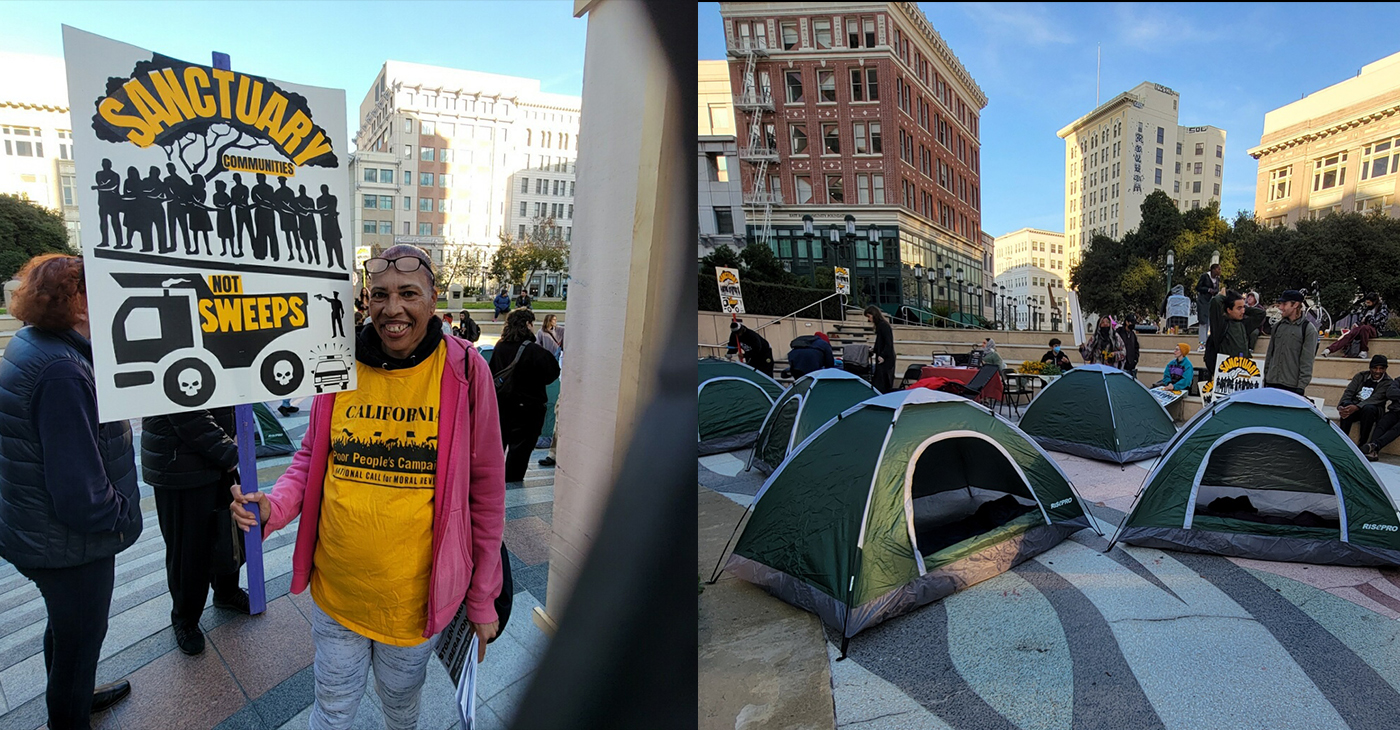Politics
White House: Scalise as No. 3 Says a Lot About Who GOP is

White House press secretary Josh Earnest speaks during the daily news briefing at the White House in Washington, Monday, Jan. 5, 2015. Earnest discussed House Majority Whip Steve Scalise of La., who admitted to speaking to a white supremacist group in 2002, the Sony cyberattack, and other topics. (AP Photo/Carolyn Kaster)
NEDRA PICKLER, Associated Press
WASHINGTON (AP) — The White House on Monday waded into a controversy over revelations that the House’s No. 3 Republican spoke to a white supremacist group 12 years ago, saying who the GOP has in leadership “says a lot about who they are.”
White House Press Secretary Josh Earnest repeatedly said Louisiana Rep. Steve Scalise once described himself as “David Duke without the baggage.” A reporter for the New Orleans Advocate newspaper said Scalise made the remark to her as he was starting out in the Louisiana Legislature nearly 20 years ago. Scalise’s office did not immediately respond to calls for comment.
Earnest said it’s up to Republicans to decide whether he retains his position. “There is no arguing that who Republicans decide to elevate into a leadership position says a lot about what the conference’s priorities and values are,” Earnest said.
“We’ve also heard a lot from Republicans particularly over the last few years, including the chairman of the Republican Party, about how Republicans need to broaden their appeal to young people and to women, to gays and to minorities, that the success of their party will depend on their ability to broaden that outreach,” Earnest said. “So it ultimately will be up to individual Republicans in Congress to decide whether or not elevating Mr. Scalise into leadership will effectively reinforce that strategy.”
The Democratic National Committee and the Democratic Congressional Campaign Committee also issued statements Monday attacking Scalise as Democrats sought to fan the controversy a day before Republicans formally assumed control of Congress. “As the new Congress begins, nothing discredits Republican claims of outreach and bringing people together more than their decision to keep Steve Scalise at the top tier of the elected leadership of their caucus,” said DNC Chair Rep. Debbie Wasserman Schultz.
The controversy was sparked last week when a liberal Louisiana blogger uncovered Scalise’s speech to a 2002 Louisiana convention of the European-American Unity and Rights Organization, which called itself EURO. Former Ku Klux Klan leader David Duke founded the group, which the Southern Poverty Law Center has classified as a hate group.
Scalise moved quickly to distance himself from the group, saying he opposes its views. As a state legislator at the time, Scalise said, he didn’t have much staffing and didn’t always know details of the groups he was invited to address. He said the speech was a mistake he now regrets, and party leaders have backed him.
House Republicans, who met Monday night in the Capitol to discuss rules changes, said Scalise was not a topic of conversation or concern. GOP Rep. Renee Ellmers of North Carolina said Scalise is widely liked and supported by his colleagues.
Louisiana’s Republican governor, Bobby Jindal, defended the congressman in response to the White House criticism.
“I don’t think it would be smart for the Republican conference to take advice from this White House,” Jindal said in an interview with The Associated Press. “Steve’s a good, decent man. I continue to support him. I know his heart. He’s not a racist.”
___
Associated Press writers Charles Babington and Erica Werner in Washington and Melinda Deslatte in Baton Rouge, La., contributed to this report.
___
Follow Nedra Pickler on Twitter at https://twitter.com/nedrapickler
Copyright 2015 The Associated Press. All rights reserved. This material may not be published, broadcast, rewritten or redistributed.
Alameda County
Last City Council Meeting of the Year Ends on Sour Note with Big Budget Cuts
In a five to one vote, with Councilmembers Carroll Fife and Janani Ramachandran excused, the council passed a plan aimed at balancing the $130 million deficit the city is facing. Noel Gallo voted against the plan, previously citing concerns over public safety cuts, while Nikki Fortunato-Bas, Treva Reid, Rebecca Kaplan, Kevin Jenkins, and Dan Kalb voted in agreement with the plan.

By Magaly Muñoz
In the last lengthy Tuesday meeting of the Oakland City Council for 2024, residents expressed strong opposition to the much needed budget cuts before a change in leadership was finalized with the certification of election results.
In a five to one vote, with Councilmembers Carroll Fife and Janani Ramachandran excused, the council passed a plan aimed at balancing the $130 million deficit the city is facing. Noel Gallo voted against the plan, previously citing concerns over public safety cuts, while Nikki Fortunato-Bas, Treva Reid, Rebecca Kaplan, Kevin Jenkins, and Dan Kalb voted in agreement with the plan.
Oakland police and fire departments, the ambassador program, and city arts and culture will all see significant cuts over the course of two phases.
Phase 1 will eliminate two police academies, brown out two fire stations, eliminate the ambassador program, and reduce police overtime by nearly $25 million. These, with several other cuts across departments, aim to save the city $60 million. In addition, the council simultaneously approved to transfer restricted funds into its general purpose fund, amounting to over $40 million.
Phase 2 includes additional fire station brownouts and the elimination of 91 jobs, aiming to recover almost $16 million in order to balance the rest of the budget.
Several organizations and residents spoke out at the meeting in hopes of swaying the council to not make cuts to their programs.
East Oakland Senior Center volunteers and members, and homeless advocates, filled the plaza just outside of City Hall with rallies to show their disapproval of the new budget plan. Senior residents told the council to “remember that you’ll get old too” and that disturbing their resources will only bring problems for an already struggling community.
While city staff announced that there would not be complete cuts to senior center facilities, there would be significant reductions to staff and possibly inter-program services down the line.
Exiting council member and interim mayor Bas told the public that she is still hopeful that the one-time $125 million Coliseum sale deal will proceed in the near future so that the city would not have to continue with drastic cuts. The deal was intended to save the city for fiscal year 2024-25, but a hold up at the county level has paused any progress and therefore millions of dollars in funds Oakland desperately needs.
The Coliseum sale has been a contentious one. Residents and city leaders were originally against using the deal as a way to balance the budget, citing doubts about the sellers, the African American Sports and Entertainment Group’s (AASEG), ability to complete the deal. Council members Reid, Ramachandran, and Gallo have called several emergency meetings to understand where the first installments of the sale are, with little to no answers.
Bas added that as the new Alameda County Supervisor for D5, a position she starts in a few weeks, she will do everything in her power to push the Coliseum sale along.
The city is also considering a sales tax measure to put on the special election ballot on April 15, 2025, which will also serve as an election to fill the now vacant D2 and mayor positions. The tax increase would raise approximately $29 million annually for Oakland, allowing the city to gain much-needed revenue for the next two-year budget.
The council will discuss the possible sales tax measure on January 9.
Activism
Protesters Gather in Oakland, Other City Halls, to Halt Encampment Sweeps
The coordinated protests on Tuesday in San Francisco, Oakland, Vallejo, Fresno, Los Angeles and Seattle, were hosted by Poor Magazine and Wood Street Commons, calling on cities to halt the sweeps and focus instead on building more housing.

By Post Staff
Houseless rights advocates gathered in Oakland, San Francisco, Los Angeles, and other city halls across California and Washington state this week protesting increased sweeps that followed a U.S. Supreme Court decision over the summer.
The coordinated protests on Tuesday in San Francisco, Oakland, Vallejo, Fresno, Los Angeles and Seattle, were hosted by Poor Magazine and Wood Street Commons, calling on cities to halt the sweeps and focus instead on building more housing.
“What we’re dealing with right now is a way to criminalize people who are dealing with poverty, who are not able to afford rent,” said rights advocate Junebug Kealoh, outside San Francisco City Hall.
“When someone is constantly swept, they are just shuffled and things get taken — it’s hard to stay on top of anything,” said Kealoh.
Local houseless advocates include Victoria King, who is a member of the coordinating committee of the California Poor People’s Campaign. She and Dr. Monica Cross co-chair the Laney Poor People’s Campaign.
The demonstrations came after a June Supreme Court ruling expanded local governments’ authority to fine and jail people for sleeping outside, even if no shelter is available. Gov. Gavin Newsom in California followed up with an order directing state agencies to crack down on encampments and urging local governments to do the same.
Fresno, Berkeley and a host of other cities implemented new rules, making it easier for local governments to clear sidewalk camps. In other cities, such as San Francisco, officials more aggressively enforced anti-camping laws already on the books.
Activism
Celebrating East Bay Leaders Keith Carson and Federal Glover at Geoffrey’s Inner Circle
Several leaders were in attendance including fellow Alameda Supervisors Elisa Marquez and Lena Tam, Superior Court judge-elect Terry Wiley, and African American Sports and Entertainment Group’s founder Ray Bobbitt, along with many other guests.

By Magaly Muñoz
After decades of public service in the East Bay, community members and leaders came together to celebrate Alameda County Supervisor Keith Carson and Contra Costa Supervisor Federal Glover at Geoffrey’s Inner Circle Thursday afternoon.
Several leaders were in attendance including fellow Alameda Supervisors Elisa Marquez and Lena Tam, Superior Court judge-elect Terry Wiley, and African American Sports and Entertainment Group’s founder Ray Bobbitt, along with many other guests.
First elected in 1992, Carson has served District 5 for 24 years and announced his decision to step away from his seat earlier this year, just before the deadline to submit new candidate applications.
He dedicated his long career to bringing access to health care, addressing homelessness, lowering crime, improving business retention, and growing job opportunities in Alameda County.
Glover began his tenure as Contra Costa Supervisor in 2000 and previously served as mayor of Pittsburg in 1998. During his time as Supervisor, he supported initiatives on public transportation, created committees for public safety, and supported task forces on health.
“These two distinguished leaders have dedicated their lives to improving the lives of so many people across Alameda and Contra Costa (counties). Their work has touched every corner of the East Bay,” Alameda County Supervisor and President Nate Miley said.
Leaders from both counties spoke on the supervisors’ legacies and their dedicated years of service.
Contra Costa Supervisor John Gioia said that Glover was the type of person that grew with each challenge that crossed him, especially after he had major surgery in 2020. But Gioia said that the treatment did not deter Glover.
“He’s had tougher races for reelection than any member of our board that I can recall, and he’s always come back stronger than before,” Gioia said.
Sharing a county border, Gioia complimented Carson on his ability to sway leaders from both sides of the political aisle to listen on the issues affecting locals and residents across the nation.
Shannell Scales Preston, who is taking over Glover’s D5 seat in 2025, told event attendees that Glover was a mentor to her for many years. He often would call Preston after Pittsburg City Council meetings with remarks about her performance and how well she spoke up on certain issues.
With Glover spending years as the only Black elected official in local government, Preston would ask him how he managed to not feel lonely about the job. She then congratulated him on being the only supervisor in Contra Costa to have all Black mayors under his district in 2023.
Preston said he’s been a leader to many diverse groups and his tenure has seen leaders of all backgrounds, but particularly paving the way for Black leaders in predominantly white areas.
Miley, who has shared his entire 24-year tenure on the Alameda Board with Carson, tearfully wished the exiting supervisor luck and said he would miss him dearly.
Carson said that as we embark on a “dark time” for everyone across the nation and worldwide in 2025, it’s important to continue communicating and working with groups from all backgrounds because that is the only way things will get done.
“There have been many lonely nights, but then the sun comes out in the morning when you continue to think, ‘I can make a difference,’” Carson said.
-

 California Black Media4 weeks ago
California Black Media4 weeks agoCalifornia to Offer $43.7 Million in Federal Grants to Combat Hate Crimes
-

 Black History4 weeks ago
Black History4 weeks agoEmeline King: A Trailblazer in the Automotive Industry
-

 California Black Media4 weeks ago
California Black Media4 weeks agoGov. Newsom Goes to Washington to Advocate for California Priorities
-

 Activism4 weeks ago
Activism4 weeks agoOakland Post: Week of November 27 – December 3, 2024
-

 California Black Media4 weeks ago
California Black Media4 weeks agoCalifornia Department of Aging Offers Free Resources for Family Caregivers in November
-

 Activism2 weeks ago
Activism2 weeks agoButler, Lee Celebrate Passage of Bill to Honor Congresswoman Shirley Chisholm with Congressional Gold Medal
-

 Activism2 weeks ago
Activism2 weeks agoPost News Group to Host Second Town Hall on Racism, Hate Crimes
-

 Activism2 weeks ago
Activism2 weeks agoDelta Sigma Theta Alumnae Chapters Host World AIDS Day Event



























































